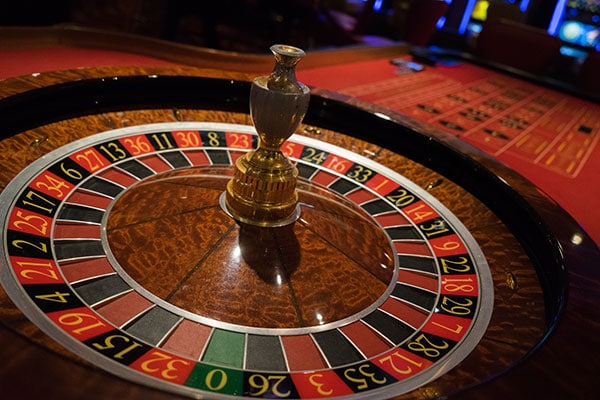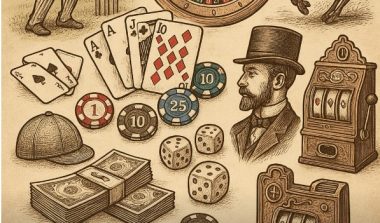The 5 Mistakes To Avoid Doing When You’re Betting
The most common mistakes bettors make…and bookmakers exploit
It’s no news to gamblers that betting works on the premise that though Lady Lucks might smile upon you on a lucky day, overall the house always wins. This hasn’t stopped many players from trying their luck, for the thrill of the game and the possibility that today might be their day, and indeed new millionaires are regularly crowned by online casinos, the same way sports bettors pick up their winnings every time a match goes their way. However, when it comes to betting, it’s essential to be aware of the tactics that bookmakers and sometimes casinos commonly employ to take advantage of unsuspecting gamblers.
By understanding these tactics, you can make more informed decisions and protect yourself from falling into their traps. In this article, we want to provide you with the essential knowledge on what to avoid when engaging in betting, so we’ve made a list of the 5 mistakes bookmakers are trying to get you to make.
If you are new to betting, and even if you aren’t, give this a read to make sure you’re not unknowingly falling into these traps.
| 1 | Making bets with lots of conditions |
| 2 | Thinking Past Outcomes Do Not Influence the Future |
| 3 | Thinking some choices you make can affect luck |
| 4 | Getting carried away by Flashing Lights and Music |
| 5 | Believing that Almost Winning gets you closer to victory |
If you follow these steps, it should help you place bets more intelligently, without making the mistakes bookmakers are trying to get you to make:
1. The Illusion of Specificity
Avoid making bets with lots of conditions
Example: Imagine a proposition bet on a specific player scoring a hat-trick in a football match, or a first goal being scored by a certain player in a certain amount of time. While it may appear exciting, the odds of such a precise outcome are often stacked against you.
Longer and more specific betting terms can be deceiving. Although odds may be presented as 10-1, the actual probability of winning could be as low as 50-1. Avoid placing excessive confidence in highly specific bets that seem enticing at first glance.
Tip: Opting for broader bets with higher chances of success may be a wiser choice.
2. The Betting Fallacy
Remember that Past Outcomes Do Not Influence the Future
Example: Let’s say the roulette wheel has landed on red for the past five spins. Some may be tempted to bet on black, assuming that a red streak must end soon. However, the probability of the next spin landing on black remains the same as any other spin – approximately 47.4% for European roulette.
Casinos may provide statistics on previous outcomes to create the illusion that future results can be predicted. However, in games of chance like roulette, each turn is independent, and past numbers hold no sway over future spins. Do not fall into the trap of believing that previous results have any bearing on future ones.
Tip: Every time you place a bet in a game of luck, imagine it’s the first time you or anyone else plays this game.
3. Psychology and the Illusion of Control/Agency
Remember that luck is random
Example: Have you ever been tempted to roll the dice harder when trying to get a bigger number, and softly to get a small number? Wouldn’t you feel more “lucky” if you buy the ticket with your favourite football player when betting on your team? Slot machines can give players the impression of control by allowing them to stop the spin. However, the stopping point is predetermined and occurs randomly, just like when the machine stops on its own.
The first one to trick us into thinking we have agency over things we can’t control is our minds; casinos and bookmakers only play on this to deepen this illusion. Bookmakers may offer choices like selecting a particular player on a ticket which make you think you’ve got more influence over the outcome of your bet. In reality, the choices you make on actions you can control do not influence the outcomes which you can’t control, that come after these active choice. The belief that exerting control over some things increases the chances of winning is a fallacy.
Tip: You can’t control your luck! Stay alert on what you can control (your purchase), and what you can’t control (the outcome of a game).
4. Deceptive Signals
Don’t get carried away by Flashing Lights and Music
Example: Winning a small amount after losing more money may trigger sounds of celebration, happy music and flashing lights. This creates the false perception of a victory, potentially leading players to continue betting in pursuit of more wins.
Casinos employ visual and auditory stimuli, such as flashing lights and catchy music, to create an atmosphere of excitement and anticipation. These elements can manipulate gamblers into believing they are winning, even when they are not.
Tip: Be cautious and remember that these sensory cues are carefully designed to make you feel like a winner, even if you are losing.
5. “Near Misses” and Losses
Remember that Almost Winning doesn’t get you closer to victory
Example: Picture a slot machine showing two identical symbols on the first two reels, followed by a different symbol on the third reel, just one position away from a winning combination. Maybe you saw this symbol go by in slow motion, and just miss the target. This near miss may evoke a feeling of anticipation and lead players to continue playing, hoping to achieve a win and satisfy the previous frustration.
Casinos often exploit the psychology of near misses to keep players engaged with the allure of having almost won, but not quite. Near misses, where players narrowly miss a win, can create a sense of excitement and the false belief that winning the big jackpot is just within reach. However, near misses are no closer to winning than clear-cut losses.
Tip: Remember: Near wins and losses are both the same outcome: a loss.
Conclusion:
To navigate the world of betting successfully, it’s crucial to be aware of the tactics employed by bookmakers and casinos. Whilst betting and playing online casino games is fun, keep a clear head. Avoid falling into the traps of longer bets that offer a false sense of specificity, the betting fallacy that past outcomes influence future results, the illusion of control or agency, deceptive sensory cues like flashing lights and music, and the allure of near misses. By staying informed and making rational choices, you can enhance your betting experience and protect yourself from these common pitfalls. You’ll get more control over your mind and your earnings, and know how to celebrate wins and better deal with losses.
Looking to read more about gambling psychology and these common mistakes? Rob Davies’s book Jackpot will explain everything in detail.









Good information. Thanks!